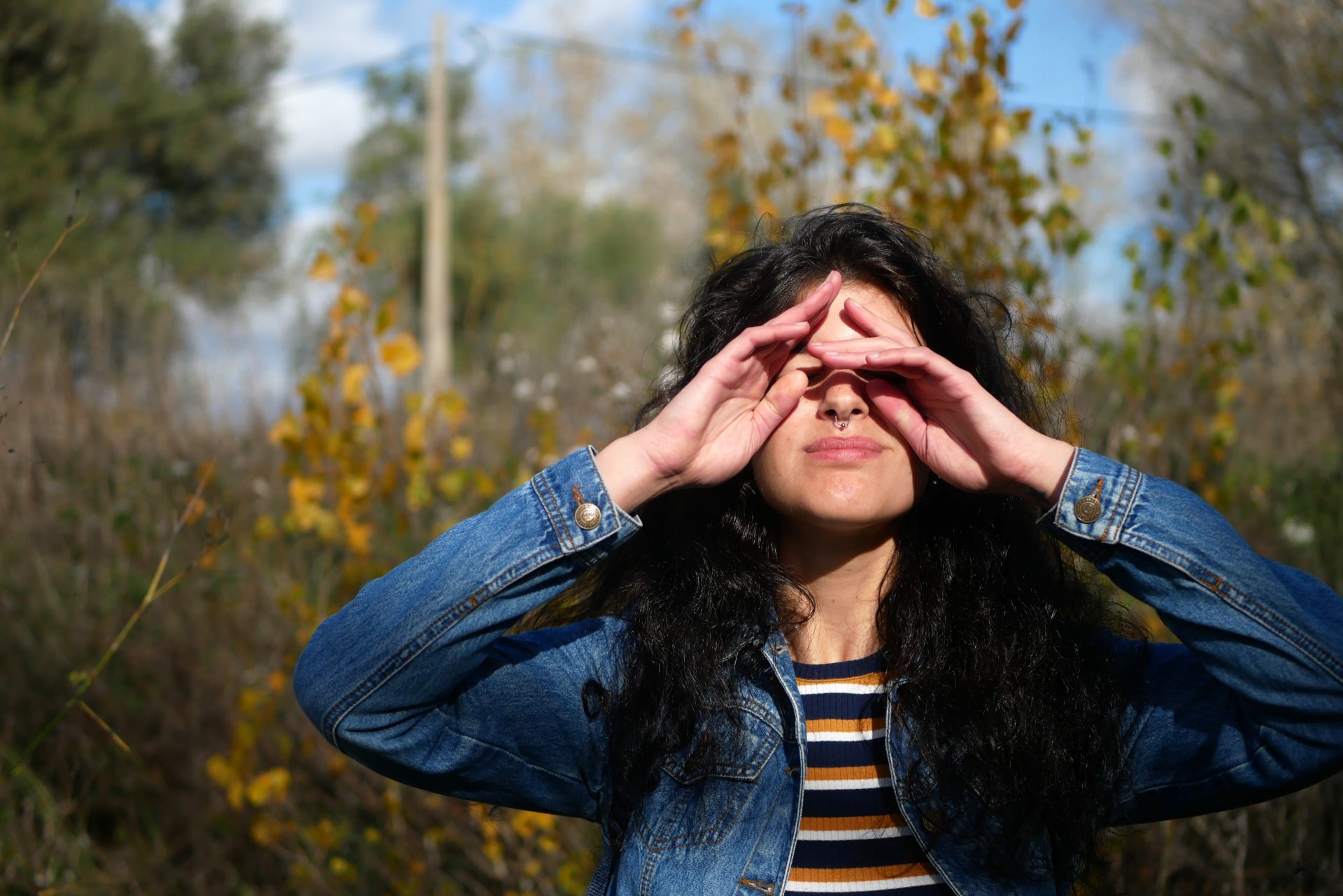Do your eyes stream in the cold air or feel dry in centrally heated rooms? Here’s why they might be more sensitive right now.
The clocks have changed and autumn is in full swing. As the nights start rolling in around 5pm, we’re thinking hard about how to stay fit and healthy during the colder, more wintry months – whether it’s working out the best ways to stay visible while running in the dark or upping our vitamin C intake to ward off bugs. But there’s one aspect of winter wellness that rarely gets an airing, and that’s eye health.
If you’re anything like us, you might have struggled against blurred, teary vision on cold mornings or suddenly noticed dryness or sensitivity since turning the central heating on. Our eyes are sensitive – and arguably never more so than around this time of year.
Nicola Alexander-Cross, optometrist and founder of Peep Club tells Stylist: “Eyes are much more prone to streaming or overwatering in the colder months because they become more dry.” She continues, “The reason is that in the colder months the air tends to be less humid, so our eyes are naturally a little bit drier.”

Then on top of that, we tend to face windy, harsh weather. “A cold winter breeze wicks away the tears faster, and tears coat the eyes and are their first line of defence that also causes them to dry out more,” Alexander-Cross says.
With that mind, we’ve been finding out how to keep eyes moist and happy right through ‘till spring.
6 ways to look after your eyes during the winter
Take care of your tears
“You usually change your moisturiser during winter for a thicker one and the same thing applies to your eyes. If you can feel that your eyes are getting quite dry, choose a very gentle spray, like the eye equivalent of an eye moisturiser,” says Alexander-Cross.
“This is the time to be thinking about taking care of your tears,” she explains, adding “popping a humidifier nearby helps get that lost humidity back. Using a hot compress can help, as can avoiding make-up products containing alcohol, fragrance or loose powder that could irritate your eyes.” Instead, look to cream or gel formulas that will be more gentle.
You may also like
NHS exercise prescriptions: are free gym memberships the key to improved mental health?
Wear sunglasses
Optometrist Francesca Marchetti from Rohto Dry Aid tells Stylist: “Even though it’s getting colder, get your sunnies out. Wearing sunglasses can protect eyes from the glare of the sun, which can cause tears to evaporate, as well as shielding them from the drying wind.”
Avoid dry hot air
“Be mindful that central heating depletes the moisture in the air,” explains Marchetti.“Avoid sitting too close to radiators and, when in a car, avoid having the heating vents blowing hot air at your face.”
Think about your diet
Drinking much more water on a daily basis is key, emphasises Alexander-Cross, who adds: “Try to eat as much oily fish as possible to get omega 3 into your diet.”
In fact, according to a National Library of Medicine study published in 2006, eating more omega-3 fatty acids was associated with reducing the risk of dry eye syndrome. By measuring the dietary intake of over 32,000 women, it was found women eating at least two servings of tuna weekly had less risk of dry eyes than those eating one or less.
You may also like
The science behind juice shots: are health shots good for you?
Prioritise sleep
Getting enough sleep during the winter is essential for eye health. Marchetti explains: “It’s during the hours that we are resting that our body can repair and recover. That goes for our eyes too, as the time they are closed is a period when they aren’t being forced to focus.” She recommends getting seven to eight hours of sleep a night. “This can allow for tears to be replenished and eyes to relax.”
Go for a check-up
It may sound obvious but the best way to get eye health advice is to have regular check-ups. “The NHS recommend we visit the opticians every two years for a check-up,” Marchetti says, before adding it’s advisable to visit the optometrist more regularly if you have concerns.
Dry eyes are irritating on lots of levels, so we’ll be turning to these simple tips the next time our make-up runs in the wind or we feel itchy soreness. And failing all that, as always, seeking an expert option is always a good idea.
Images: Getty
Source: Read Full Article
